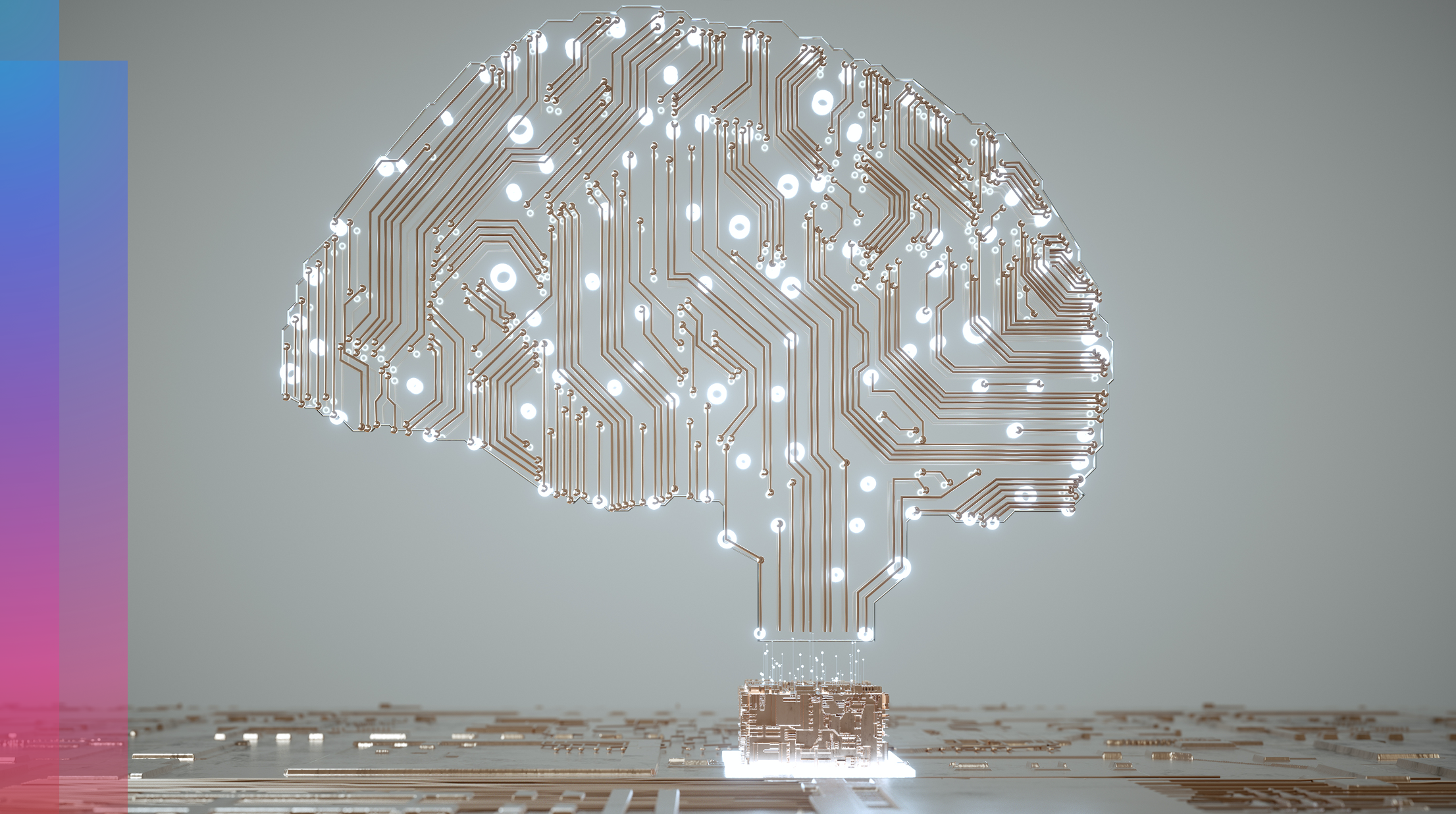African American Solutions | Solutions Matrix
African American Solutions - Journal

- Details
- Written by: Dr. Jehoshaphat K. Jones
Allies in Action: How Non-African Americans Can Address Key Disparities in America
(Racial) disparities, an unfortunate reality of our society, are not a problem for the affected communities alone to solve. The onus of rectifying these imbalances falls on every member of society, especially those in positions of privilege. This piece offers a comprehensive guide for non-African Americans—our allies—in tackling issues affecting the African American community. It explores actionable strategies in business administration, education, employment, health and wellness, networking, leadership, legal reform, politics, technology, and wealth management.
Business Administration
The American business landscape continues to evolve, yet African Americans remain underrepresented, especially in leadership positions. Allies can play a crucial role in changing this. First, they can make conscious choices to support African American businesses—purchasing their products and services, investing in their ventures, and advocating for their growth within their networks.
Allies can also use their influence to promote diversity within their own organizations—actively pushing for fair hiring practices and supporting African American colleagues to ascend the corporate ladder. Offering mentorship to African American entrepreneurs is another way to break down barriers, as this not only provides business insights but also builds confidence and network connections.
Education
Education is a powerful tool that can help level the playing field, but only if it's equally accessible to all. Allies can help bridge the educational gap in several ways. They can volunteer in schools with a high population of African American students, providing support as tutors, coaches, or mentors.
In advocating for curricula that are inclusive of African American history and contributions, allies ensure a comprehensive education that represents all Americans' experiences. Scholarships sponsored by allies can provide essential financial support for African American students, creating opportunities for higher education that might have otherwise remained out of reach.
Employment and Careers
Racial disparities persist in employment and career advancement. Allies can influence change by advocating for diversity and inclusion in the workplace. This includes fair hiring practices, equitable salary structures, and unbiased promotion opportunities. Mentorship from allies can also contribute to the career growth of African American professionals, providing guidance, support, and access to broader professional networks.
Health and Wellness
African Americans face unique health challenges, often linked to socioeconomic disparities. Allies can volunteer or donate to organizations focusing on improving African American health outcomes. Advocating for healthcare policies that address racial health disparities is another essential action.
The promotion of mental health resources is critical, given the high stress and trauma associated with racial inequality. Allies can further contribute by supporting local wellness initiatives in African American communities, providing resources for healthy living.
Networking and Relationship Management
Networking is a vital part of professional development. Allies can ensure they're including their African American colleagues in networking opportunities. They can also make efforts to connect with professionals from different racial backgrounds, facilitating an exchange of ideas and opportunities that benefits everyone involved. Allies can further support by sharing resources and opportunities within these diverse networks.
Leadership and Mentorship
There's a significant lack of African American representation in leadership roles. Allies can advocate for greater diversity in leadership within their organizations and professional circles. Mentoring early-career African American professionals can provide invaluable guidance and open doors to new opportunities. Allies can also support leadership development programs specifically designed for African Americans.
Legal Reform
The legal system, with its deep-rooted biases, often fails African Americans. Allies can support legal reform by advocating for policies that ensure equal treatment in the justice system. They can also support organizations that provide legal aid to African American communities. Allies in the legal profession have a particular responsibility to encourage a more diverse and representative legal system.
Politics
In the political sphere, allies can vote for and support candidates prioritizing racial equality. They can encourage African American participation in politics, both in terms of candidacy and voter turnout. Allies can further educate themselves about the issues impacting the African American community and advocate for policy changes to address these issues.
Technology
The tech industry is yet another field where African Americans are underrepresented. Allies can promote diversity in tech by advocating for educational opportunities for African Americans interested in tech careers. They can support initiatives to bridge the digital divide disproportionately affecting African American communities.
Wealth Management
The racial wealth gap in America is a glaring example of systemic inequality. Allies can support policies and initiatives aimed at reducing this gap. This includes advocating for fair lending practices and supporting financial literacy programs in African American communities. Allies with expertise in finance can provide pro bono services, assisting African American families in wealth creation and management.
Being an ally goes beyond acknowledging the existence of racial disparities—it involves taking proactive steps to help rectify these imbalances. By leveraging their privilege and influence in areas like business, education, employment, health, networking, leadership, legal reform, politics, technology, and wealth management, allies can significantly contribute to creating a more equal and just society.

- Details
- Written by: Dr. Jehoshaphat K. Jones
Leveraging Artificial Intelligence and Other Technologies to Improve the African American Community
In the rapidly evolving world of technology, Artificial Intelligence (AI) and other emerging technologies are revolutionizing every sphere of life, offering novel solutions to age-old problems.
The African American community, historically subjected to systemic and socio-economic disparities, stands to benefit enormously from these technological advancements. This article delves into how AI and other technologies can be leveraged to improve various aspects of the African American community, including education, health, economic empowerment, and criminal justice reform.
Education
Education is the cornerstone of empowerment, and technology has the potential to redefine the educational landscape. AI can be employed to customize learning experiences, catering to individual students' needs and abilities. AI-driven tutoring systems can identify learning gaps and provide tailored educational content, which can significantly aid in closing the educational achievement gap that African American students often face.
In addition, virtual reality (VR) and augmented reality (AR) technologies can transform traditional pedagogical methods, making learning more interactive and engaging. These technologies can be used to bring history to life, including the rich cultural heritage of African Americans, promoting a more inclusive curriculum.
Moreover, coding and digital literacy have become as essential as reading and writing in the modern world. Programs that teach these skills equip African American students with the tools needed to succeed in the digital economy, promoting equitable participation in the tech industry.
Healthcare
Healthcare disparities are a significant issue in the African American community, leading to higher rates of chronic diseases and lower life expectancy. AI and technology can play a pivotal role in bridging this gap. Telemedicine, powered by AI, can overcome geographical barriers, allowing individuals in remote or underserved areas to access quality healthcare. AI can also help in early disease detection and personalized treatment plans, potentially mitigating the effects of chronic diseases prevalent in the community.
Moreover, mobile health technologies can promote preventive care by encouraging healthy behaviors and facilitating regular health monitoring. AI can analyze patient data to predict health risks and suggest preventive measures. These solutions can be particularly beneficial in addressing food deserts and lifestyle-related health issues.
Economic Empowerment
Economic disparities are a stark reality for many African Americans. Here again, AI and other technologies can offer innovative solutions. Fintech, powered by AI, can democratize access to financial services. It can provide alternative credit scoring models, enabling more African Americans to access loans and start businesses. Mobile banking can reach the unbanked or underbanked, providing them with a means to participate in the formal economy.
In addition, digital platforms can connect African American entrepreneurs with broader markets, allowing them to expand their businesses. AI can provide insights into market trends and consumer behavior, enabling businesses to make informed decisions.
Online learning platforms can also provide skills training in various sectors, preparing individuals for the job market. Such platforms can particularly help in training for tech jobs, a sector with a high earning potential and significant underrepresentation of African Americans.
Legal Reform
The criminal justice system has been a source of systemic injustice for the African American community. AI and technology can aid in reforming this system. Body cameras and other surveillance technologies can provide transparency in law enforcement interactions. However, it's crucial that these technologies are used ethically and do not lead to increased surveillance of marginalized communities.
In the courtroom, AI can help reduce biases in sentencing. Algorithmic risk assessment tools, if used judiciously, can aid judges in making informed decisions about bail and sentencing. However, it is critical that these tools are designed to avoid reinforcing existing biases in the criminal justice data.
Furthermore, digital platforms can aid in prisoner education and rehabilitation, providing resources and training to help reintegrate former prisoners into society.
Community Empowerment
Technology can also facilitate community organization and activism, amplifying the voices of African Americans. Social media platforms have already shown their power in movements like Black Lives Matter. AI can aid in analyzing community needs and identifying effective strategies for social and political change.
However, it's crucial to recognize the existing digital divide, often along racial and socio-economic lines. To fully leverage the benefits of AI and other technologies, efforts should be made to improve digital literacy and access to technology in the African American community.
Moreover, as we embrace these technologies, African Americans must remain vigilant about their potential misuse. AI, though powerful, can reinforce societal biases if not properly designed and monitored. Ethical AI development practices that include diverse perspectives can help prevent such issues.
Artificial Intelligence and other emerging technologies offer many opportunities to address disparities and empower the African American community. By strategically leveraging these technologies, significant strides can be made toward creating a more equitable society. However, it's vital to ensure that these technologies are accessible to all and used ethically.

- Details
- Written by: Dr. Jehoshaphat K. Jones
Strategic and Collective Efforts to End Poverty in the African American Community
The battle against poverty, especially in marginalized communities, is not an easy one, but it is a fight that needs to be tackled strategically and collectively. The African American community has been disproportionately affected by poverty due to systemic and structural barriers that have spanned generations.
The solution to these pervasive problems lies not in isolated efforts but in a collective, comprehensive approach that addresses the root causes of poverty. This article seeks to highlight the strategic and collective efforts necessary to eradicate poverty in the African American community.
First and foremost, education is a powerful equalizer and a platform for upward mobility. Addressing the education gap in the African American community is a strategic starting point in the fight against poverty.
This involves implementing policies to ensure equal access to quality education for all students, regardless of their socioeconomic background. It involves increasing funding for schools in economically disadvantaged areas, investing in teacher training and support, and implementing culturally responsive curriculums that empower African American students.
Secondly, economic empowerment through job creation and promotion of entrepreneurship within the community serves as another strategic approach. By supporting industries such as technology, healthcare, and green energy, sustainable employment opportunities can be created.
Furthermore, providing capital, business training, and mentorship can foster the growth of African American businesses, thereby stimulating economic development within the community. Introducing or increasing minimum wage legislation can ensure workers can afford basic necessities, reducing the rate of working poverty.
Health equity is a critical piece of the poverty eradication puzzle. Implementing equitable healthcare policies can prevent the high cost of medical expenses from driving families into poverty. This includes improving access to affordable, quality healthcare for all individuals, regardless of their income. Public health initiatives should address food deserts in African American communities, providing affordable, healthy options.
The criminal justice system, heavily skewed against African Americans, contributes significantly to the cycle of poverty. Strategic efforts should be geared toward reforming this system. This involves reducing mass incarceration, eliminating barriers to employment for formerly incarcerated individuals, and addressing the school-to-prison pipeline.
Moreover, policies to expand affordable housing initiatives can significantly reduce poverty rates. This entails increasing funding for public housing and implementing policies that prevent discriminatory housing practices.
Furthermore, financial literacy programs, particularly those targeting young individuals, can empower individuals with the tools necessary to manage their finances, build wealth, and avoid predatory financial practices.
These strategic efforts, however, need to be complemented with robust social safety nets, including food assistance, unemployment benefits, and childcare subsidies, which provide relief for families in times of crisis and prevent them from falling deeper into poverty.
While these strategies outline the direction, the journey toward poverty eradication in the African American community requires a collective effort. It necessitates the active participation of not just individuals within the community but all stakeholders - government, private sector, nonprofits, and society at large.
Community-based organizations and local leaders are pivotal in implementing and promoting these changes at a grassroots level. Collaboration with schools, healthcare providers, and businesses can provide holistic, community-wide solutions. Similarly, advocacy groups can aid in shaping policies that address systemic barriers to economic mobility.
Furthermore, it is incumbent upon all sectors of society to actively work to dismantle systemic racism, which perpetuates these disparities. Corporations can contribute by promoting diversity, equity, and inclusion in their workplaces, while media can challenge stereotypes and promote positive representation of African Americans.
The path to ending poverty within the African American community is neither straightforward nor simple. However, with strategic, comprehensive solutions, and collective, concerted efforts, it is a path that leads to a destination worth striving for – a society where prosperity is within the reach of every individual, irrespective of their background. It requires resilience, patience, and most importantly, an unwavering belief in the potential of the African American community to thrive when given equal opportunities.
- Solutions for the African American Community: Paving the Path to Prosperity
- Building Mature Relationships with African American Children - The Power of Mentorship
- Strategies to Connect Existing Organizations and Improve African American Conditions
- Our Next African American Leaders: Keys to Success
- Creating Schools for African American Girls and Transforming Education
- Initial Steps for African American Leaders to Build Coalitions to Improve Conditions in the African American Community
- Developing an Independent African American Political Party and Solutions for Empowerment
- The Future of African Americans and Global Prosperity
- Health and Wellness Solutions for African Americans: Overcoming Disparities and Cultivating Optimal Well-Being
- Developing African American Schools for Boys: Fostering Academic Excellence, Empowerment, and Success











